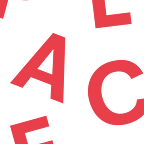Patterns Across Places (2)
April and May 2020
Lankelly Chase Place Action Inquiry and COVID-19: What patterns are we spotting across the different places?
Max French & Habiba Nabatu
Context
Our second round of analysis took place across April and early May in the context of rapid policy change and adjustment to lockdown. Significant new developments were taking place. At the local level, public services were adapting and mutual aid networks were embedding. Large-scale national policy changes were also made to mental health, social care, homelessness and criminal justice systems. Lankelly Chase’s emergency funds were also distributed to some places, and key actors within our Action Inquiry played a central role in their coordination.
Themes
Rapid transition
Emerging strongly from all our partners was a sense of rapid and disorientating change as services transitioned to new ways of working in lockdown. Most conspicuously, major policy interventions had taken hold which touched many partners’ work, such as temporary housing to ease homelessness, revisions to methadone dispensing and the relaxing of local authorities’ duty of care. The impetus for reform was also led by changing demand from communities. Casework profiles for some partners were changing dramatically, for instance with some noting a large spike in domestic violence referrals. Many of our partners faced an early struggle to adapt their practice. Those involved in delivery and people-facing organisations described the difficulties of rapidly moving toward distanced and digital approaches to service delivery. Those with a role focussed on convening networks or communities were forced to innovate ways of moving this practice online.
Disorientation and powerlessness
Our partners working in places described a range of adaptations which organisations like local authorities had made to contracting and commissioning or new service development as a ‘window’ of opportunity. The system appeared in this second month to be more open to change and embracing risk. People began to use learning spaces created by our partners as a retreat from the chaos, rather than a solution-focussed space. In contrast to expectations the previous month, it was the precisely the lack of agenda and comparative openness which was the attracting factor.
However, when asked to identify what felt significant, partners often struggled to single things out, and many conversations over this period involved a struggle to make sense of changes and determine a course of action. In a strange way it felt to some partners as if many of their aims had suddenly and unexpectedly been achieved. A larger dent in homelessness had been made by national policy almost overnight than could have been achieved in even a best-case scenario through our work. The processes often seen as obstructive to system change, such as inflexible operating procedures, alienating performance targets, antagonistic contracting processes, and hierarchical organisational structures were relaxed or circumvented. COVID-19 had done more to create Lankelly Chase’s 9 system behaviours than anything we could realistically attribute to ourselves. It was as if we had ‘won’ but without playing a real part. This felt aggressively humbling, even disheartening, to some of us.
Differences in challenge and response across places
It also became apparent that COVID-19 was affecting some places far more than others, and that the character of challenges faced was very particular to places. New infections and fatalities from COVID-19 varied significantly across our six places, and the challenges of remoteness, service access, urban/rural divisions and level of deprivation were considered significant. More invisible and relational qualities — such as underpinned by the 9 System Behaviours — also became significant. Differences in factors like the quality of relationships, degree of interconnection amongst organisations and inclusivity of cultures seemed to determine how cohesive place responses to COVID-19 were.
What’s new and what’s significant?
The empire snaps back?
A key concept which kept coming up in this period was system ‘snap back’ — the fear that all of the positive developments would revert to ‘normality’ over time. People felt a sense of urgency, even desperation, in seeking to avoid this, but were often left too overwhelmed by the pace of adaptation taking place around them to respond. A central question for many of us has been how to maintain or salvage what we can — changes to commissioning procedures, service development, and policy have all shown what is possible. This creates an odd positioning for the Place Action Inquiry, no longer as a changemaker but a defender of a new (though contested and temporary) status quo. The first question for us seems to be: what narratives can we develop to prevent unhelpful processes and policies from being switched back on?
Support and time for reflection
Many of our partners have found this time period particularly challenging, both personally and in a work capacity. We have done what we can to give people the opportunity to take a step back in their work, breathe slowly, and make sense of their changing environment. Nevertheless, we have seen heightening demand for support, for instance as a critical friend for decision making, for peer support, or for coping with an escalating workload. A second question arising from this period is, how do we make sure our focus on learning is not squeezed out by increasing demands for action.
Investment in participative capacity and relationship building.
Some of the networks and groupings created by out contacts struggled to stay relevant, others took on a renewed prominence. The experience shows how significant the quality of relationships in place is to acting and reacting well. Some of our contacts saw investment in co-production and participatory methods as a crucial contribution to building trust and a sense of community by making people feel included, valued and contributing to a shared goal. A final question emerging is what methods, tools or approaches can we offer to help contacts build relationships and extend commitment outward for system change?
